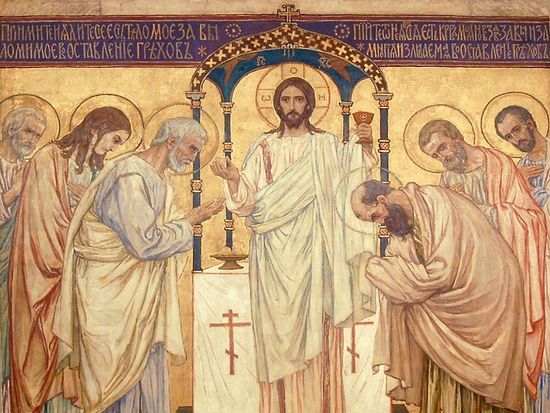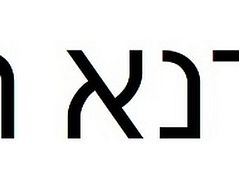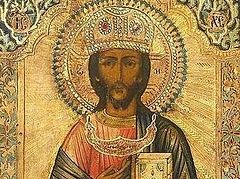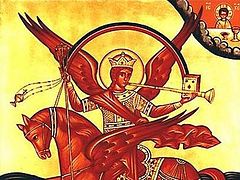Orthodox Christianity often seems inherently conservative. The unyielding place that tradition holds within its life seems ready-made for a conservative bulwark against a world all-too-ready to forget everything that is good or beautiful. There are subtle but important distinctions that make this treatment of Orthodoxy misleading and can lead to the distortion of the faith and an almost reverse image of our true salvation. Orthodox Christianity does not seek to preserve something that is now past – it is not a faith bound in history. Rather, it professes that what was once given at a moment in history is nothing other than that which shall be at the end of all things. The faith is thus only rightly lived when it is radically oriented towards that which is to come. The Kingdom of God is never anything other than the end and fulfillment of all things, that for which creation itself came into existence.
“I am the Alpha and the Omega, the Beginning and the End,” says the Lord, “who is and who was and who is to come, the Almighty.” (Rev 1:8)
Understanding the true nature of the “end of things,” or, in theological terms, “eschatology,” is a difficult task at first. It breaks many rules of space and time (yes, Dr. Who fans, it really does), and requires a certain shift in perspective. One example of this shift can be found in the Eucharistic prayer of St. John Chrysostom where the priest prays:
Do this in remembrance of Me! Remembering this saving commandment and all those things which have come to pass for us: the Cross, the Tomb, the Resurrection on the third day, the Ascension into heaven, the Sitting at the right hand, and the Second and glorious Coming.
The priest refers to the Second Coming in the past tense. This does not represent some strange doctrine in which the Second Coming is thought to have already occurred in history. Rather, it is the recognition that the Divine Liturgy stands in a mystical place from which it is correct to describe the Second Coming in that manner. For the Divine Liturgy is truly the “last” supper, the meal at the end of all things.
The Fathers held that the truth is to be identified with the end. Both St. Maximus the Confessor in the East, and St. Ambrose in the West, wrote of a three-fold scheme in which the Old Testament is “shadow,” the New Testament is “icon,” while the “truth” is the age to come. This understanding has several aspects.
First, the truth of anything is found not in the present, but in its telos, its end. A seed is not known until it is a tree. But, most importantly, this realization of the truth is not seen as a gradual progression, a building up towards the truth. Such a scheme would suggest that the truth is “not yet.” The truth, however, is already and now. We can say that the truth, which already exists in the age to come, draws everything towards itself. Or, we can say that the truth, which already exists in the age to come, manifests itself in time even now, for those who have the eyes to see.
Our most common way of viewing the world is to privilege history, to presume that the past is immutable and is the cause of all things in the present. That makes us the authors of creation, the makers of the story of the universe. That is very alluring, even though it carries the seeds of anxiety and war. But God has not so constituted creation so as to make it the maker of its own destiny, the master of its own fate.
At the creation, God observes His work and says, “It is very good.” This is not simply an observation of the work He had done, but a proclamation of the very nature of the creation itself. Its nature is revealed in its end. The end calls forth creation, always towards that for which it was created. St. Paul offers this description:
…having made known to us the mystery of His will, according to His good pleasure which He purposed in Himself, that in the dispensation of the fullness of the times He might gather together in one all things in Christ, both which are in heaven and which are on earth– in Him. (Eph 1:9-10)
This verse should also be read along with St. Paul’s statement in Romans 8:
And we know that all things work together for good to those who love God, to those who are the called according to His purpose. (Rom 8:28)
This is the “good” or the “very good” according to which all things were created. This same good, however, is hidden. It is in no way obvious to us, except as we see Christ Himself.
Consider the world, ca. 1000 B.C. An utterly obscure people, little more than a collection of tribes, is engaged in a struggle over a piece of land that is almost useless in its fertility and insignificant in its situation and size. Within the same region, however, mighty kingdoms and civilizations are rising and flourishing, producing wealth, power, and innovation. Their monuments will stand for thousands of years. But in this obscure place, a young man will face down a giant in single combat and win. In the scale of the universe, it is almost nothing, without significance. But this is the story of David and Goliath, and this David will become the ancestor of God Incarnate, Who is Himself the “good” of the world.
At this very moment, we cannot judge or measure the “good” within the world, nor can we measure the aggregate of evil. Nothing makes any sense until it is interpreted in the light of the end of all things. David only has significance in hindsight. It is his offspring who “causes” him to have meaning and significance. More than that, we must understand that the “cause” of David’s renown was already drawing all things towards itself. Christ the child was causing the rise of David and establishing his kingdom.
In the same manner, our own lives are being “caused” by the end for which they were created. Again, St. Paul says:
Brethren, I do not count myself to have apprehended; but one thing I do, forgetting those things which are behind and reaching forward to those things which are ahead, I press toward the goal for the prize of the upward call of God in Christ Jesus. (Phi 3:13-14)
We do not build on the past or seek to preserve the past. The foundations of the Kingdom of God are not in this world, nor of this world. They are “unshakeable,” in the words of Scripture. What is called “tradition” by the Church is not a dim historical memory; it is the ever-renewed life of the Spirit that is “once and for all delivered to the saints.” The continuity of the Tradition does not depend on memory. It is the same always and everywhere because it is the once-given reality that has existed from before all time and towards which we are being drawn.
This is a strange perspective for most people and runs counter to the merely human sense of conservatism. It might strike an outside observer as something conservative, but if what is maintained is only preserved in a historical manner, it is not the life nor the truth of the Tradition. There is a requirement that we must empty ourselves at every moment in every way and constantly receive the life that is being given. Jesus Christ is the same “yesterday, today and forever.” And this is the content of the Tradition. I do not know Him today because I knew Him yesterday. I may only know Him now.




